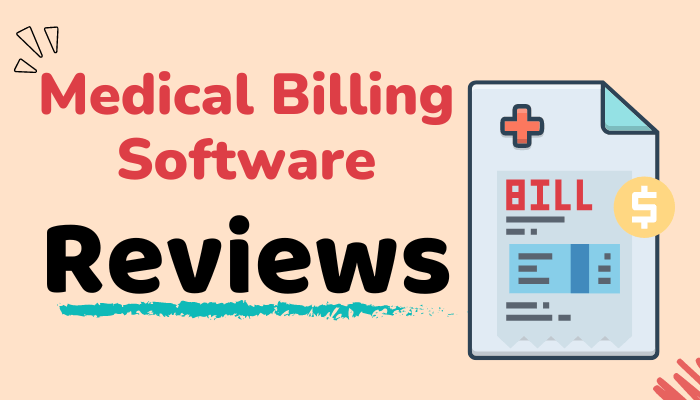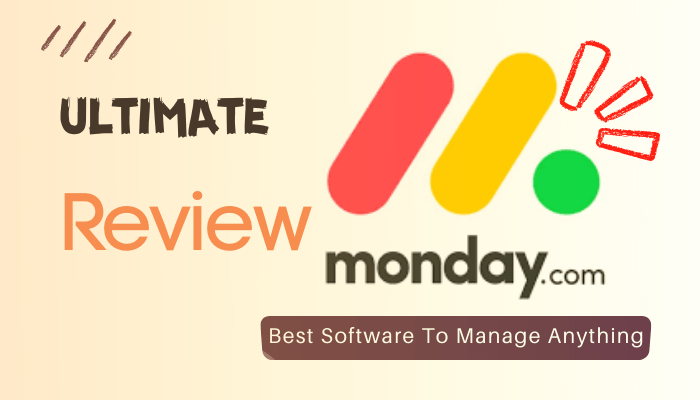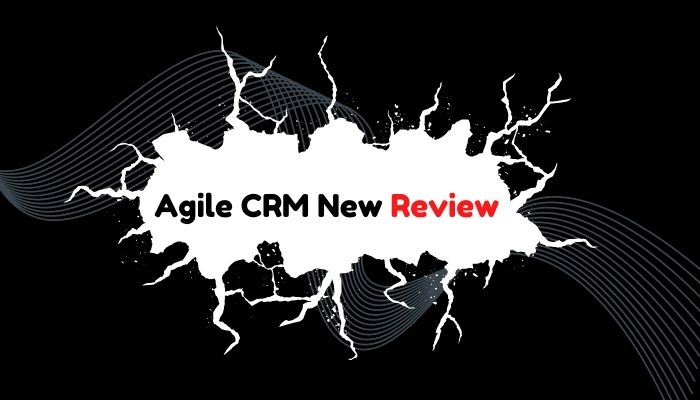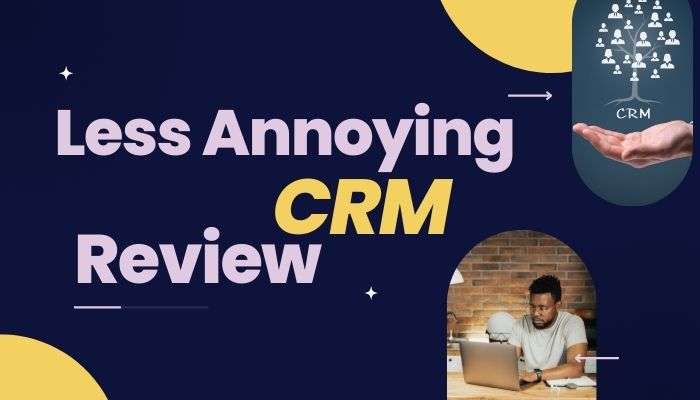What is CRM Software -Complete Guide For Beginners in 2022
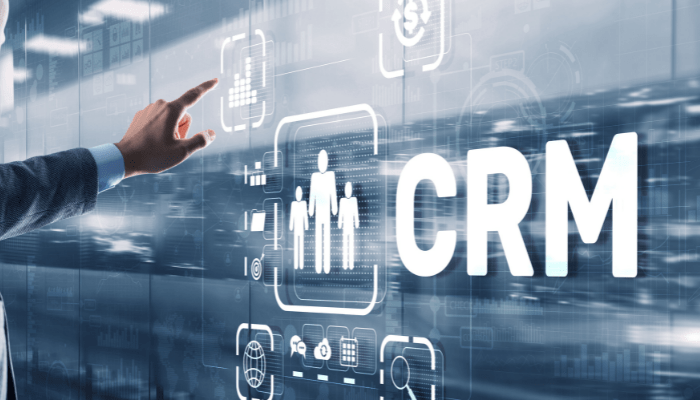
If you’re running a business, then you know that managing customer relationships is essential for success. But what if there was a way to make managing those relationships even easier?
Well, there is – it’s called CRM software. It is a system that helps businesses manage customer interactions and data.
It can help with tasks like sales, marketing, and customer service. In other words, it’s a tool that can help you run your business more efficiently.
As project management starts with how you can handle every step in your business, customer contact data, and building a unique system to run all of these in automation.
If you’re not familiar with CRM software, then this guide is for you. We’ll give you an overview of what CRM is, how it can help your business, and some of the features to look for when choosing a CRM system.
By the end of this guide, you’ll have a good understanding of CRM software and how it can benefit your business.
Let’s get started!
What is CRM Software?
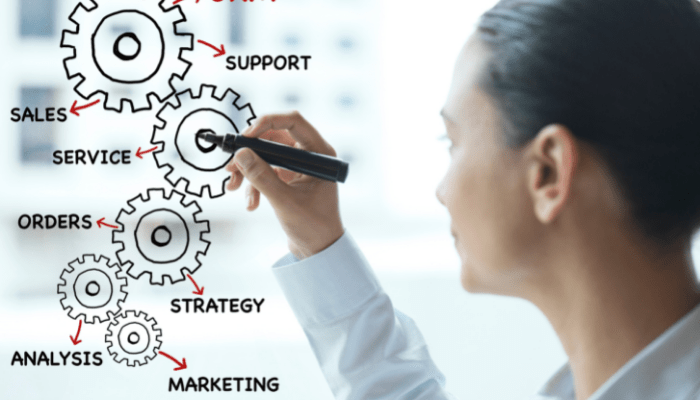
CRM software is a great way for business owners to keep track of their client data.
It allows them the ability not only to organize but also analyze all communications and relationships with those who could be potential customers or even just lead generation prospects in order efficiently nourish this information over time.
So they can better target future marketing efforts while impressed clients remain satisfied partners throughout it all!
By using the best CRM software, you can be sure to connect all the data from your sales leads and customers.
A central database consolidates communications (forms fills calls emails), documents purchases tasks associated with each lead or client.
This means that both sides of every transaction are always accessible in just one place -in order for closing deals quickly should there arise any issues along the process!
CRM software is the most amazing software that ensures a connection between companies and their customers.
CRM means CRM software that considers all the methods, techniques, tools, and advances used to retain and acquire clients.
This is not only software but a great technology that provides every step of cooperation with the customers to enhance the general benefits without any hindrance and skill.
The
CRM helps organizations track and monitor client interactions in record settings.
It records interactions between a business and its existing customers. It facilitates interaction by putting all relevant customer information.
Why does any Business need CRM Software?
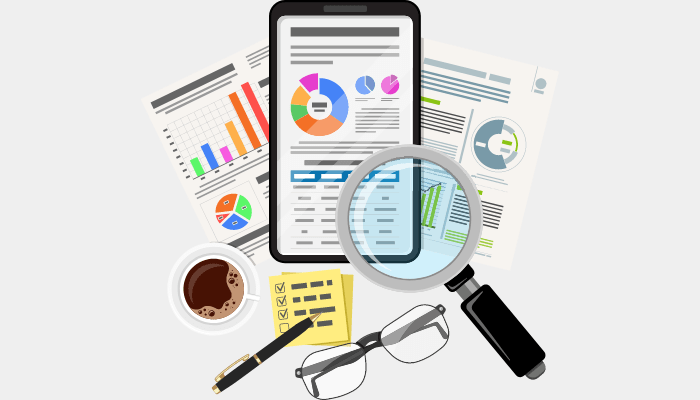
CRM software is a system businesses can use to manage customer data. This customer data can include customer contact information, customer service requests, and sales histories.
Having this information organized in one place can help businesses keep track of interactions and improve customer service.
Additionally, some CRM systems include features such as automated marketing and customer segmentation.
These features can help businesses to more effectively reach their target market and close sales. Ultimately, it can help businesses to boost customer satisfaction and loyalty, leading to repeat business and long-term success.
What does CRM software depend on?
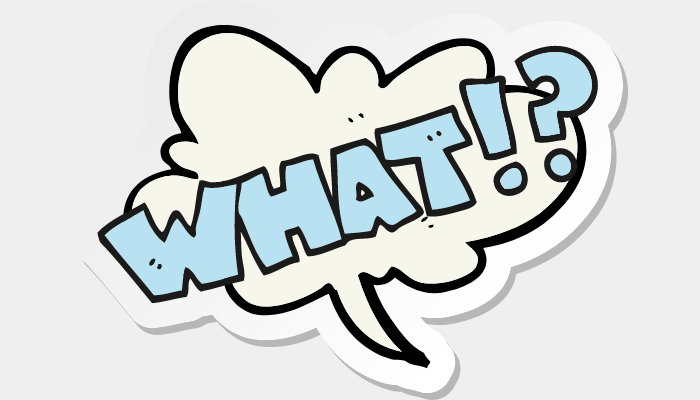
In general, when a person discusses CRM, he/she actually refers to a CRM system that works effectively – a tool that helps organizations manage sales, exhibitions, and executives.
CRM tools programming allows organizations to terminate their organizational affiliation with clients, partners, providers, etc. With an expert CRM setup
It’s very easy to find new clients, win their trust, and offer extra support throughout the relationship.
How does CRM software work?
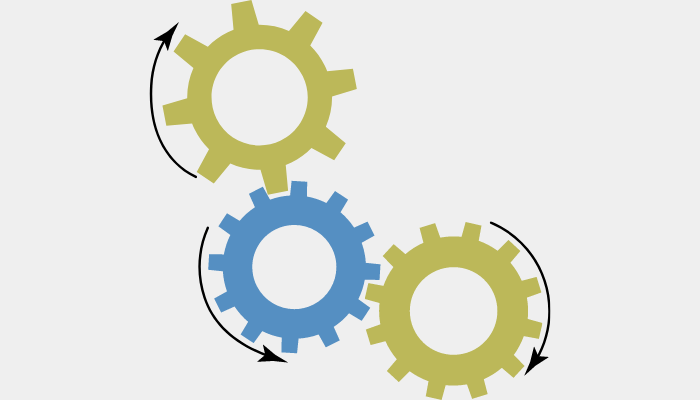
The aim of
A CRM software collects client interaction in one place across all diverts.
Monitoring focused information helps organizations further enhance the client experience, completion, care, and management.
CRM allows organizations of all sizes to grow and increase profits.
It receives data from emails, voice calls, and various channels to help you gain more clients and retain what you already have.
They give you a place to integrate your work process and business process, so you can easily team up to work efficiently and make further arrangements.
The tools of CRM i.e. marketing and sales automation interact with executives and work – these are highlights of the CRM framework.
However, CRM software should work the way your business does. There are many good it available there, and no one size fits all.
However, every organization has a custom CRM invention for one type of business system.
Benefits of CRM software
Develops more customer service
A CRM framework handles each of your contacts and aggregates lead and client data so you can create profiles of each person you collaborate with.
It gives you easy access to important data such as purchase records and past correspondence with contacts across different channels (views, emails, etc.) to make it easier to understand client behavior.
The client will not need to resubmit their accounts to you again and again, and you will have the option of resolving issues with best practice and less effort to keep the more advanced client unsteady.
Helps to expand the sales
Simplifying and further enhancing transaction interactions, building a sales pipeline of deals, robotizing undertakings, and breaking down your business information will definitely have a consequence – the performance of extended sales and deals.
A CRM framework allows you to open, view, and email touchpoints to all of your clients.
You’ll secure further arrangements by making repeatable, visible sales processes, and delivering the right message on the right channel at the right time.
Grab more customers
Care and turnover rates are important determinants of an organization’s well-being. Client beat is a major barrier to business growth.
CRM tools such as analysis, automated, and client care automation can work decisively on your care by allowing human experts to prevent problems.
Analytics tools that look into the client’s life cycle can show you when and why a rage occurs so that you can identify and troubleshoot.
Better analytics
A great “Analytical CRM tools” make your information accessible, understandable, and applicable to your business needs.
Each of your stores promotes the flow of information, and financial information into CRM so that there is an apparent measurement, with information warehousing and information mining, everything is organized there.
The net benefit is to provide better information to the client’s purchasing, client care, and board.
High efficiency
Putting all your important business skills in one place in one place leads to better performance with higher efficiency no doubt CRM works professionally to manage all your business deals.
Task automation works politely, and redundantly, and provides additional opportunities for mental assignments in which people excel.
Dashboards and analytics will help you learn about your work and improve a wide range of business processes.
Better information sharing
Wrong communication and lack of data transfer are two important time wasters.
At a time when people are taking the time to figure out for themselves what other team members do not yet know how to do or work on extra tasks, you are losing a ton of hours each week.
Cooperative CRM devices can streamline your collaboration by allowing you to build an information base, set up best practice work processes, and provide a way to better communicate between team members.
More straightforwardness
A CRM framework allows you to encourage more prominent straightforwardness in your association, by skipping tasks, showing work, and clearly presenting who will be and who is doing what.
Assuming your primary concern is doing sales, you can use the following procedure for individual dealing experts.
A CRM phase allows each member of your association to gain an understanding of your business process, fostering a more general understanding and collaboration.
Who can benefit from CRM software?
Anyone with a business can take advantage of the CRM system. This software is designed to help businesses to make strong relationships with their customers.
Anyone who is doing sales, marketing their businesses, running startups, dealing with advertising agencies, firms, and craft projects can benefit.
The biggest aspect of the CRM framework is that practically any organizational unit can benefit from this software – from deals and client support to listing, exposure, and business improvement.
Powerful CRM provides an excellent way to monitor all types of external relations.
Keeping all customer data in one place, recording management issues, differentiating potential open doors, and monitoring demonstration efforts – are just a few of the capabilities that CRM highlights.
Because CRM recognizes information easily, it is much easier for clients to team up on different cycles and increase efficiency.
Another solid argument for CRM is that it is perfect for businesses of any type and size.
How to choose the right CRM software?
1- Do your research
When it comes to CRM, choosing the right software solution is essential. After all, the CRM you select will play a major role in determining how effectively you collect and manage customer data.
The good news is that there are a number of great CRM solutions on the market.
However, with so many options to choose from, it can be tough to know which one is right for your business. That’s where research comes in.
By taking the time to do your research, you can compare features and prices to find the CRM that best meets your needs.
In addition, you can read customer reviews to get an idea of how different CRM solutions perform in real-world scenarios.
By taking the time to do your research, you can be confident that you’re choosing the right CRM vendors for your business.
2- Consider your budget
(CRM) the software helps businesses manage customer data and interactions. It can also automate and streamline business processes such as sales, marketing, customer service, and support.
When choosing a CRM system, it is important to consider your budget and what features and capabilities you need.
Some CRM systems are very basic and only include customer contact information and a few other features.
Other CRMs are much more comprehensive and can include features such as customer segmentation, lead management, opportunity management, marketing automation, sales team, customer service automation, and much more.
One of the main benefits of CRM systems is that they can help you improve customer satisfaction by providing you with the tools you need to better manage your relationships with your customers.
When considering a CRM system, be sure to consider your budget and what features and capabilities you need to best meet your customer’s needs.
3- Consider your business needs
CRM platform is a critical tool for businesses of all sizes. It can help with marketing automation, customer journey, and customer interactions.
However, with so many CRM options on the market, it can be difficult to choose the right one for your business. The first step is to understand your business needs.
What features are most important to you? Which ones will help you increase sales and improve customer service?
Once you have a clear idea of your needs, you can start comparing different CRM options to find the one that’s right for your business.
4- Make a list of features you want
Top CRM is designed to help businesses manage their relationships with their customers. The features of CRM vary, but they typically include marketing automation, sales automation, and customer relationship management software.
When choosing a CRM platform, it is important to consider the features that are most important to your business.
For example, if you are looking for a CRM software that will help you with marketing automation, then you will want to choose a software that includes features such as email marketing, lead tracking, and campaign management.
On the other hand, if you are looking for CRM features that will help you with sales force automation, then you will want to choose a software that includes features such as quotes and invoices, contact management, and opportunity tracking.
By considering the features that are most important to your business, you can choose the right CRM features for your needs.
5- Try before you buy
Choosing the Top CRM vendors for your business can be a tough decision. There are so many different options out there, and it can be hard to know which one is right for you. That’s where free trials come in.
By taking advantage of a free trial, you can test out a CRM platform and see how it works for your business.
This allows you to try out different features and see how they can help improve your workflow. Plus, it’s a great way to get a feel for the user interface and make sure that the CRM solution you choose is easy to use.
With so much potential on the line, it’s definitely worth taking the time to find the perfect CRM for your business.
And with free trials available, there’s no reason not to give it a try!
6- Ask for recommendations
If you’re looking for a customer relationship management solution, chances are you’ve already spoken to a few different companies and gotten a few different recommendations.
But how do you know if those recommendations are actually helpful? And how can you be sure you’re choosing the right CRM for your small business?
The first thing to keep in mind is that not all CRM platforms are created equal.
There are dozens of different options on the market, each with its own unique set of features and capabilities.
That’s why it’s so important to get recommendations from people who have used the software themselves and can speak to its strengths and weaknesses.
Another important factor to consider is whether or not the recommender is impartial.
If they’re being paid by the company whose software they’re recommending, there’s a good chance they’re not giving you an unbiased opinion. Instead, they’re likely just trying to sell you on the product.
Ultimately, the best way to choose the right CRM for your small business is to get recommendations from people you trust who have used the software themselves.
This will give you the best chance of finding a platform that fits your needs and budget.
7- Read reviews
If you’re in the market for customer relationship management (CRM) software, customer reviews can be a valuable resource.
By reading customer reviews, you can get an idea of how well a particular software solution meets various needs, including customer experience, workflow automation, and support for small businesses.
Furthermore, customer reviews can help you identify potential problems with a given CRM solution and give you a better sense of whether or not it’s the right fit for your organization.
With all of this in mind, be sure to read customer reviews before making your final decision on which CRM software to purchase.
The best CRM software in 2022
–Engagebay

Engagebay offers a complete CRM solution for sales and marketing and businesses of all sizes.
With Engagebay, you can manage your customer relationships, sales pipeline, and marketing campaigns in one place.
The platform also includes powerful features such as sales automation, lead management, and tracking analytics.
Whether you’re a small business or a large enterprise, Engagebay can help you streamline your sales team and marketing processes and grow your customer base.
–Monday

It has everything the sales cycle needs to manage its contacts, including a capturing customer information system, salesforce integration, and a CRM solution.
Monday.com CRM also includes powerful marketing automation features, such as email marketing, lead capture, and lead nurturing.
With Monday.com CRM, sales and marketing can close more deals, grow their sales team management, and get smarter about their marketing.
And the best choice for small businesses who want customizable sales CRM.
-DayLite
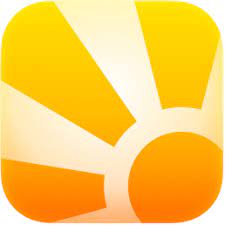
DayLite CRM is a sales team and sales and marketing solution that helps sales reps streamline their sales process.
It features a drag-and-drop interface that makes it easy to keep track of sales opportunities, and it integrates with a variety of email, calendar, and task management solutions.
DayLite CRM also includes built-in CRM solutions that sales reps can use to manage their customer relationships.
Finally, DayLite CRM offers a number of customization options, so one responsible for marketing campaigns can tailor the software to their specific needs.
-Keap
Keap is a contact management and CRM tool that helps businesses streamline their sales process and improve customer retention.
It offers a number of features designed to make it easier to manage customer relationships, including contact lists, contact records, contact notes, and contact groups.
Keap also provides a number of tools for managing the sales process, including lead tracking, pipeline management, and opportunity tracking.
In addition, Keap offers a number of features designed to help businesses improve customer retention, including contact reminders, customer profiles, and customer segmentation.
-SalesMate
SalesMate CRM is a contact management and customer relationship management tool that helps businesses keep track of their customer interactions and sales pipeline.
The main features of SalesMate CRM include contact management, sales pipeline tracking, marketing analytics, and lead generation.
With SalesMate CRM, businesses can track every contact made with a customer, including phone calls, emails, and meetings.
Additionally, businesses can use SalesMate CRM to track their sales pipeline, identify trends in their customer base, and generate leads. By using SalesMate CRM, businesses can improve their customer relationships and increase their sales.
– Salesforce
Salesforce CRM is a sales management tool that helps customer service teams keep track of their sales cycle and manage customer relationship data.
It provides customer support teams with a centralized place to store customer data, track sales goals, and measure performance.
Salesforce CRM also offers a variety of features to help sales teams work more efficiently, such as email integration, sales intelligence, and mobile access.
In addition, Salesforce CRM provides a platform for customizing sales processes and building custom integrations with other business applications.
As a result, Salesforce CRM is a powerful tool for sales teams of all sizes.
– Zoho CRM
Zoho CRM is a powerful customer relationship management tool that can help sales teams close more deals and improve customer experience.
It offers a number of features that make it a good choice for small businesses, including automation, collaboration, and reporting.
Automation can help sales teams stay organized and follow up with leads in a timely manner.
Collaboration features make it easy for team members to work together on projects.
Reporting tools give managers visibility into team performance and identify areas for improvement.
Overall, Zoho CRM is a robust CRM solution that can help small businesses improve their sales operations.
Which CRM Pricing Plan should You Choose?
If you’re looking for a CRM pricing plan that will give you the best sales forecasting, small business CRM is the way to go.
This type of CRM allows you to keep track of your sales pipeline and customers in one place, making it easy to see which deals are likely to close and where you might need to follow up.
In addition, small business CRM gives you the ability to segment your customers and target them with specific messaging.
This can be a valuable tool for increasing conversion rates. While there are other CRM pricing plans available, small business CRM is typically the most affordable option and offers the best return on investment.
As your business grows, you can upgrade to a more comprehensive CRM system if needed.
Conclusion
It is clear that the use of CRM completes these significant levels of customer loyalty. The advent of social media and the inclusion of the CRM framework will undoubtedly change the way client relationships work.
After all, with big data and predictive analytics, the entire client-executive interaction is getting frustrated, and that’s where the ultimate fate of CRM lies.

